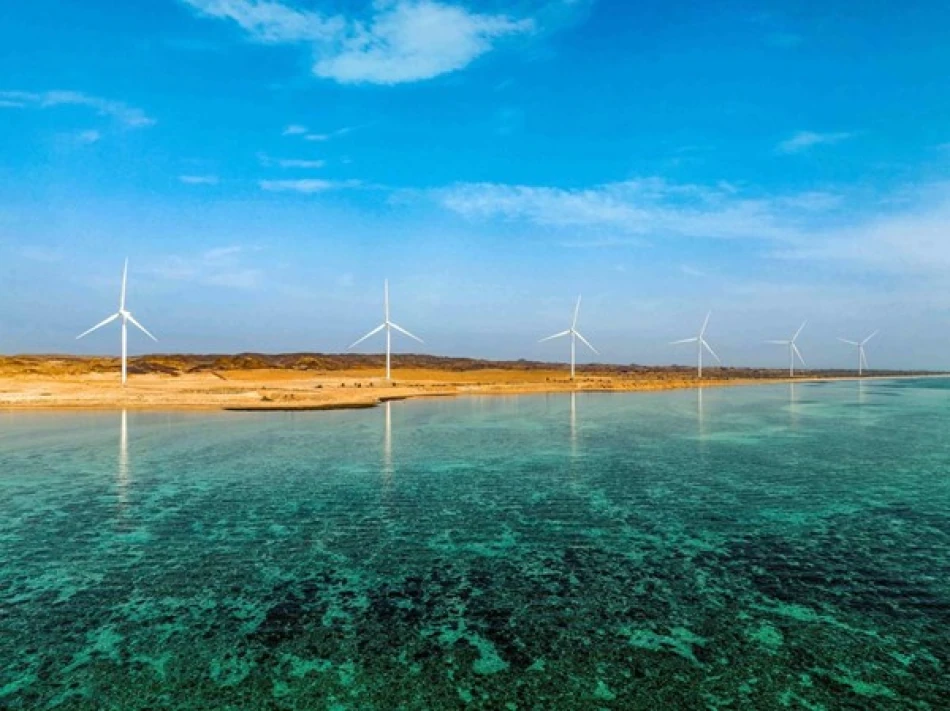
Women Empowered: Saudi Firm Nurtures Female Leaders in Clean Energy Sector
UAE's Masdar Leads by Example: Women Now Hold Quarter of Leadership Roles in Clean Energy Giant
As the UAE celebrates Emirati Women's Day, renewable energy powerhouse Masdar reveals that women occupy nearly 25% of its leadership positions, demonstrating how strategic gender inclusion is reshaping the Middle East's energy transition. The Abu Dhabi-based company's approach offers a blueprint for integrating female talent across technical, executive, and strategic roles in what has traditionally been a male-dominated sector.
Breaking Barriers in a Conservative Energy Landscape
Masdar's gender diversity metrics stand out in the Gulf region, where energy companies have historically struggled with female representation in technical roles. The company's commitment extends beyond tokenism—women are leading projects across more than 40 countries, overseeing everything from solar installations to hydrogen technology development.
"Empowering women is not just an ethical commitment or social responsibility, but an investment in a more advanced and sustainable future," said Mohamed Jameel Al Ramahi, Masdar's CEO. This perspective reflects a broader shift in how energy companies view diversity as a competitive advantage rather than merely a compliance requirement.
Strategic Integration Across Technical Disciplines
The company's approach differs significantly from superficial diversity initiatives seen elsewhere in the region. Women at Masdar are embedded in core technical functions, from project engineering to environmental impact analysis. This integration spans critical areas including battery storage systems, photovoltaic technology, and emerging hydrogen solutions.
Dr. Lamya Nawaf Fawaz, Executive Director of Corporate Identity and Strategic Initiatives, emphasized that gender inclusion has been "at the core of Masdar's strategy since its establishment." This long-term commitment has created a pipeline of female talent that now influences decision-making at multiple organizational levels.
Regional Context and Global Implications
Masdar's gender diversity strategy emerges against the backdrop of the UAE's broader women's empowerment agenda, championed by Sheikha Fatima bint Mubarak. This top-down support creates an enabling environment that many regional energy companies lack, giving Masdar a significant advantage in attracting diverse talent.
Competitive Advantage in Global Markets
The company's diverse workforce positions it favorably when competing for international projects, particularly in markets where gender diversity is increasingly valued by investors and development partners. This strategic advantage becomes more pronounced as Environmental, Social, and Governance (ESG) criteria gain prominence in project financing decisions.
The integration of women in technical roles also addresses a critical skills shortage facing the renewable energy sector globally. As the industry scales rapidly toward 2030 climate targets, companies that successfully tap into diverse talent pools gain operational advantages over competitors relying on traditional recruitment patterns.
Next-Generation Leadership Pipeline
Perhaps most significantly, Masdar is cultivating young female engineers and analysts who represent the future of clean energy leadership. Engineers like Salwan Al Nahdi and Mahra Al Hot exemplify this emerging generation, working on cutting-edge projects that integrate solar technology with sustainable agriculture and advanced energy storage systems.
Noura Al Balushi, an analyst in Environmental Governance and Social Responsibility, leads environmental and social studies for critical infrastructure projects. Her work on battery storage and hydrogen technologies demonstrates how the company is positioning women at the forefront of emerging energy technologies that will define the next decade of growth.
Alignment with National Renewable Energy Targets
These diversity initiatives directly support Masdar's ambitious goal of reaching 100 gigawatts of renewable energy capacity by 2030. The company's ability to deploy diverse teams across international projects becomes crucial as it scales operations to meet this target, which represents one of the most aggressive expansion plans in the global renewable energy sector.
The success of this approach may influence other Gulf energy companies to reconsider their own diversity strategies, particularly as competition for skilled technical talent intensifies across the region's expanding clean energy sector.
Most Viewed News

 Layla Al Mansoori
Layla Al Mansoori






